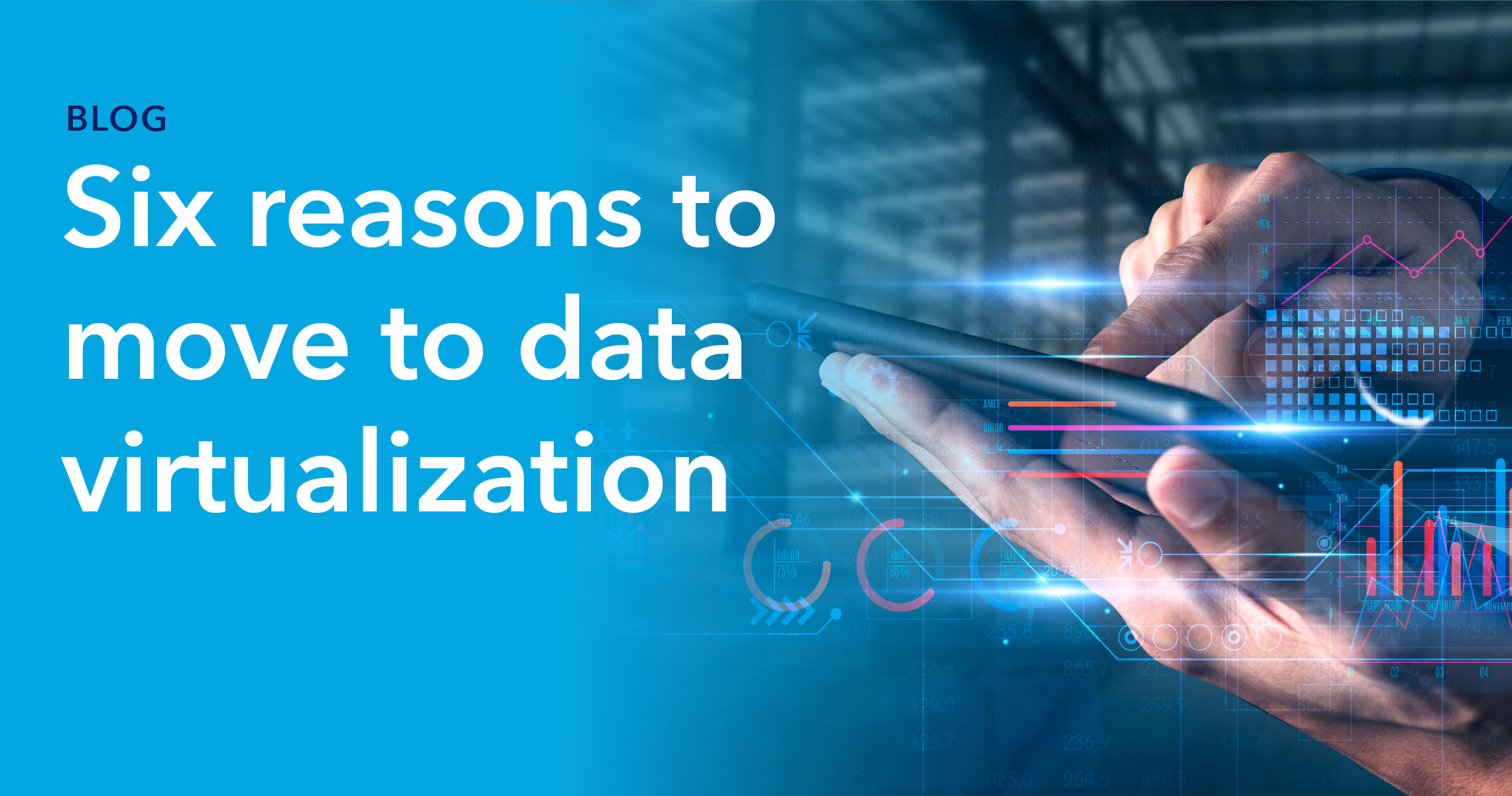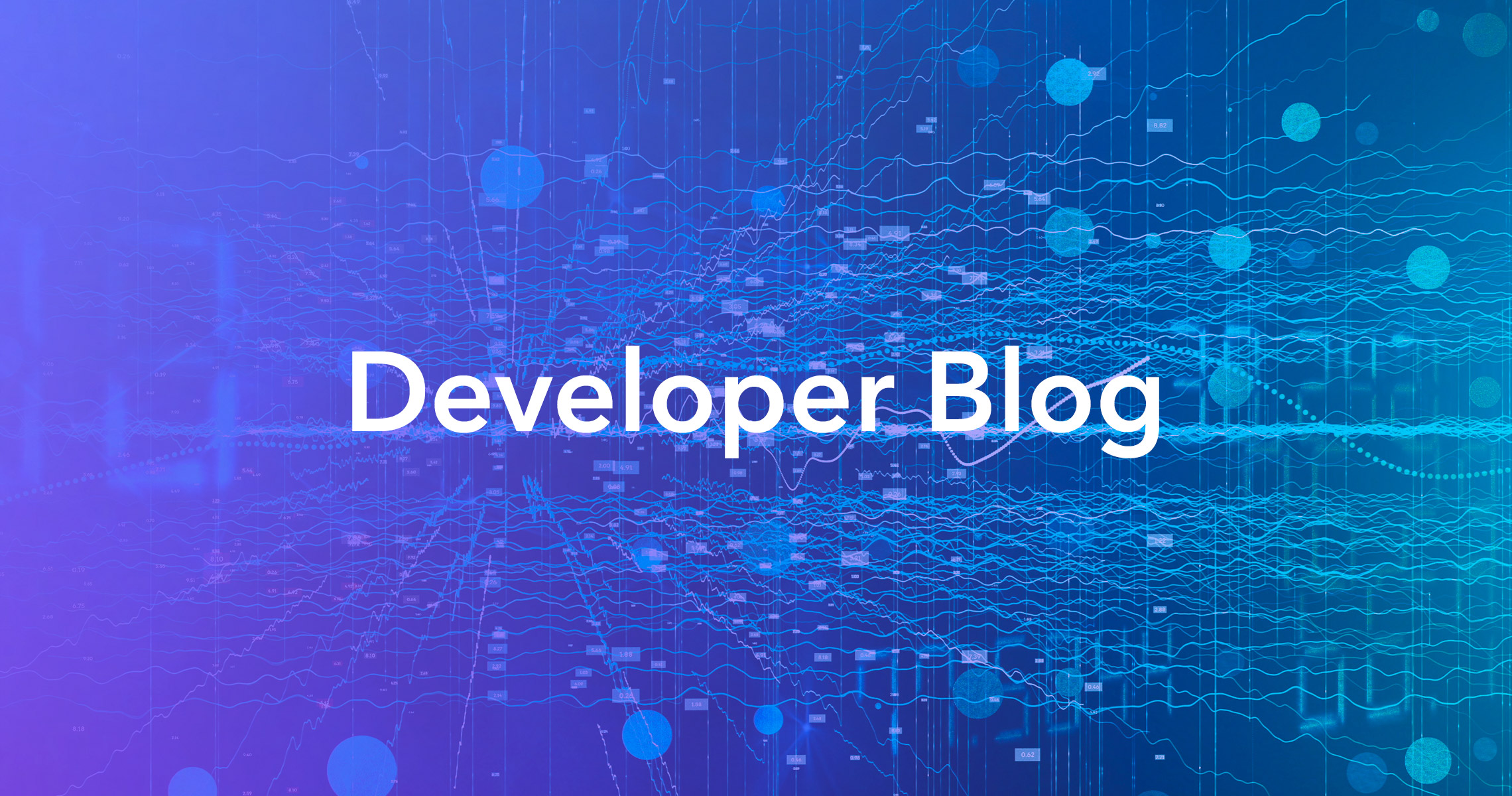Data collection is growing exponentially, and organizational data functions are inevitably struggling to scale accordingly. When data operations expand faster than the architecture built to serve them, it can lead to slower downstream delivery of analytics, increased compliance and security risks, and reduced ROI. The solution to these friction points is moving to data virtualization.
Since data virtualization creates virtual copies of data for analysis, a data virtualization platform becomes an interoperable layer that sits between data storage and processing. When data is required for analytics, it can be gathered immediately from wherever it resides without the need for data migration or lengthy ETL processes. Data virtualization delivers a number of benefits over traditional data architectures. Here we’ll look at six of the most important benefits.
1. Faster time-to-market for analytics
Without time-consuming data migrations and ETL processes, custom analytics can be performed much more quickly. In an Agile DataOps environment, it also reduces the time it takes data functions to collect, process, and compose usable datasets for downstream functions. There are also significant time gains made in the implementation phase, as a data virtualization platform can be deployed quickly over existing assets in lieu of the extensive planning and building phase required for traditional data architecture.
2. Stronger security
Data virtualization improves your DataOps security and lowers organizational risk in several ways. As there is no need to perform data migrations, data cannot be breached or exposed to improper access during those processes. With data virtualization, the data analytics process itself always takes place in secure execution environments which further reduces the attack surface of critical data operations.
This also increases trust between parties during data sharing, assuring original data owners that they can strictly define who gets to view data and how it can be used. In the case of a data breach, a data virtualization platform can produce full audit logs so the source of a breach can be identified and dealt with more quickly.
3. Regulatory compliance
Compliance with data regulations has become a major issue for all organizations, no matter the size of their data function. Legislation such as the GDPR in Europe, CCPA in California, and others around the world place strict obligations on data collection, user consent, and data processing. Failure to comply with these can lead to significant fines and loss of consumer trust.
Data virtualization platforms help ensure compliance by allowing data administrators to put strict access conditions on all data, such as tags regarding consent for sharing or delimiting the lifecycle of data. With these controls, admins have a clearer picture of the organization’s data compliance and how to maintain it as new data is collected and stored.
4. Flexible storage options
In an attempt to keep pace with the growth of data collection and processing needs, the architecture to service data operations has generally moved beyond on-premises-only options towards hybrid or cloud-only systems. The costs involved in obtaining the high-bandwidth storage can be significant and increase as data usage does.
As data virtualization allows virtual copies of all data to be gathered for analysis no matter where it resides, it gives organizations much broader options in terms of finding cheaper storage solutions without affecting the function and speed of their analytics.
5. Better DataOps ROI
The improved insight velocity and operational efficiency delivered by data virtualization allow significant gains in terms of resource usage by reducing the operations planning lifecycle. There are also fewer resources needed for data curation and discovery. With those resources no longer needed for locating and cleaning data, DataOps can find new ways to deliver value for an organization.
Faster data delivery also gets ahead of data’s value decay, meaning usable data gets to be actioned while it is at its most useful, rather than an organization suffering the opportunity costs of lost revenue.
6. Data catalogs
Data catalogs are repositories of metadata that make it much easier for data scientists to find the data they need for analysis. Data virtualization enables automatic and comprehensive data cataloging of all existing and incoming data assets, meaning that relevant datasets can be quickly composed when requested by downstream users. Data catalogs also allow compliance functions to clearly tag datasets to limit their use and, in general, to monitor how data is being used throughout the organization.
How Intertrust Platform can help
Data virtualization doesn’t just allow companies to easily scale with the growth of their data collection and processing; it also improves delivery speeds and ROI. Rather than requiring large initial investment or high maintenance and storage costs, data virtualization can be simply “dropped-in” and deployed over existing assets with minimal disruption or extra training needed.
The immediacy of data virtualization, both in terms of implementation and how it accesses data for analysis allows companies to create a truly Agile DataOps function without having to compromise on cost or security.
To find out how Intertrust Platform uses data virtualization to improve data delivery speeds, reduce costs, and ensure compliance for companies around the world, you can read more here or talk to our team.
About Prateek Panda
Prateek Panda is Director of Marketing at Intertrust Technologies and leads global marketing for Intertrust’s device identity solutions. His expertise in product marketing and product management stem from his experience as the founder of a cybersecurity company with products in the mobile application security space.




